TL;DR - Key points on OpenAI’s big announcement:
- October 31st, 2024: OpenAI officially introduces ChatGPT search to help get fast, timely answers with links to relevant web sources.
-
On July 25th, 2024, OpenAI announced plans to launch SearchGPT (a groundbreaking AI-powered search engine).
-
A prototype is currently in beta testing, gathering valuable feedback from a select group of users and publishers.
-
SearchGPT integrates real-time information with conversational AI for immediate and relevant answers.
-
It represents a shift towards more personalized and conversational web search experiences.
-
SearchGPT has the potential to challenge Google's dominance in search.
Google has dominated online search for so long that it’s difficult to imagine a usurper. Well, start imagining. After more than two decades of near monopolistic rule (sorry, Yahoo! and Bing), a true challenger to the throne is at the castle walls: SearchGPT.
Created by the innovative minds at OpenAI (the future-forward folks who brought us ChatGPT), SearchGPT isn't just another search engine—it's a game-changer that combines the prowess of AI with the art of search.
Imagine a search engine that doesn't just throw a list of links at you, hoping you'll find the needle in the haystack. Instead, SearchGPT takes those links, digests the content, and serves you a neatly summarized answer on a silver platter, complete with sources. It's like having a librarian, a detective, and a knowledgeable friend rolled into one. And yes, King Google, that sound you hear is the sharpening of knives.
The Prototype Stage: Get in Early
Currently, SearchGPT is in the prototype stage, open to a select group of users and publishers for testing and feedback. If you're itching to try it out and be part of the future of AI-powered search, you can join the waitlist. The service, powered by the GPT-4 family of models, aims to integrate its best features directly into ChatGPT, enhancing the user experience even further.
How Does It Work?
Upon entering the SearchGPT interface, you're greeted with a simple question, "What are you looking for?"
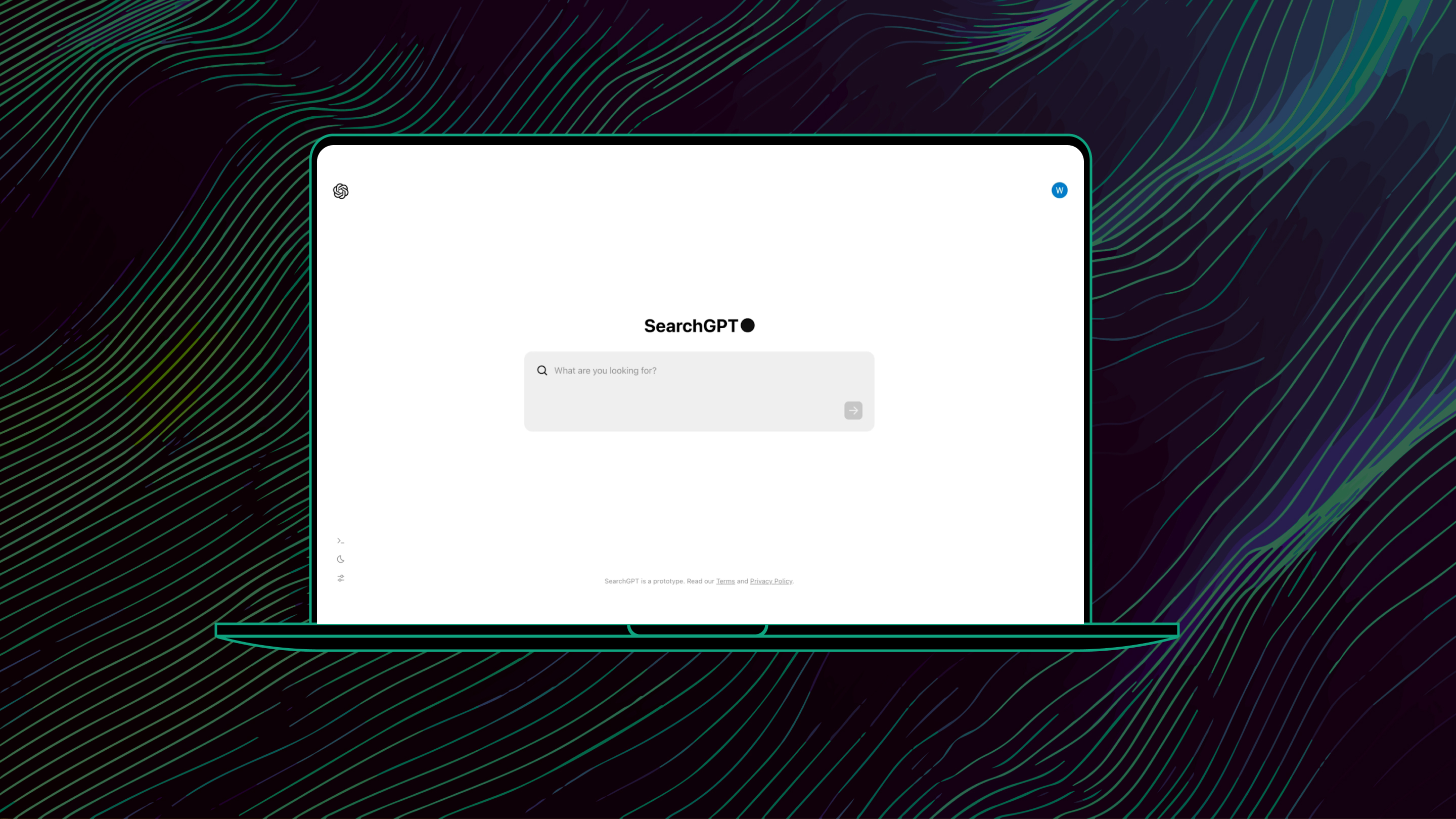
But unlike traditional search engines, the real magic happens after you hit enter, courtesy of generative AI. SearchGPT organizes the information it finds, offering clear, in-line attributions and source links. Want to dive deeper? The sidebar provides additional links for those who want to explore further.
One example demonstrated by OpenAI showed SearchGPT summarizing information about various music festivals, complete with short descriptions and attribution links.
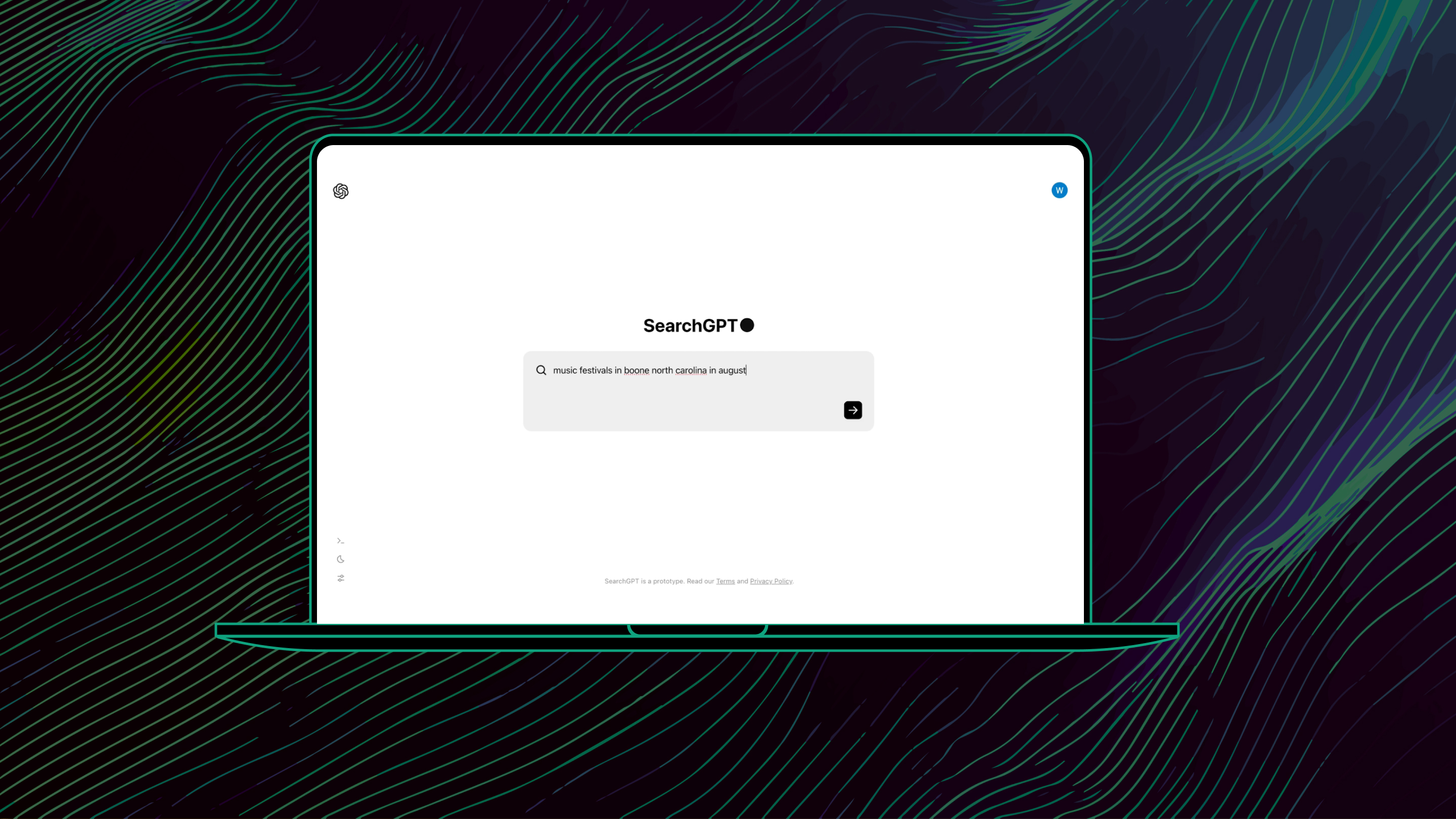
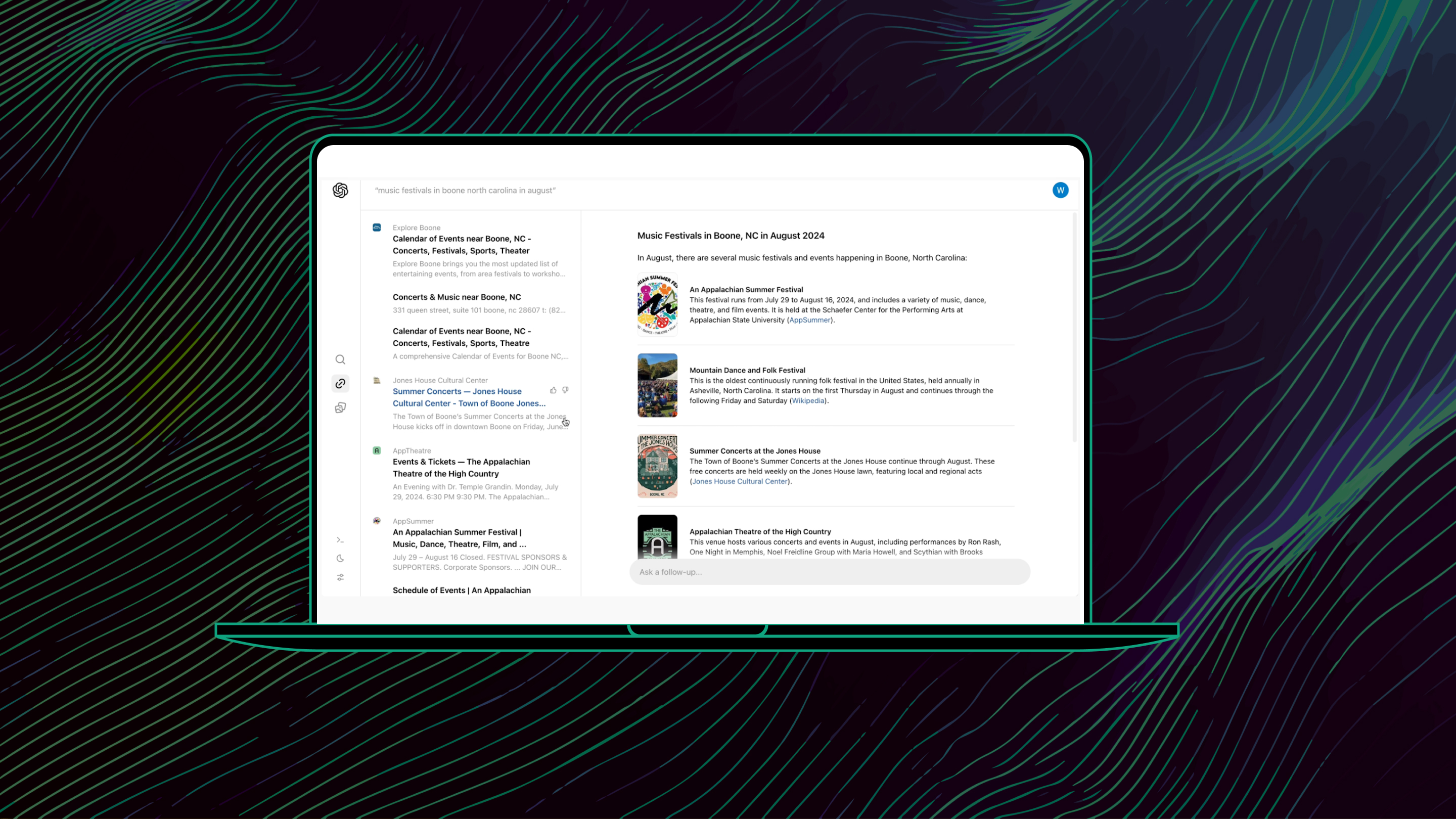
In another instance, it detailed the best times to plant tomatoes, breaking down different varieties.
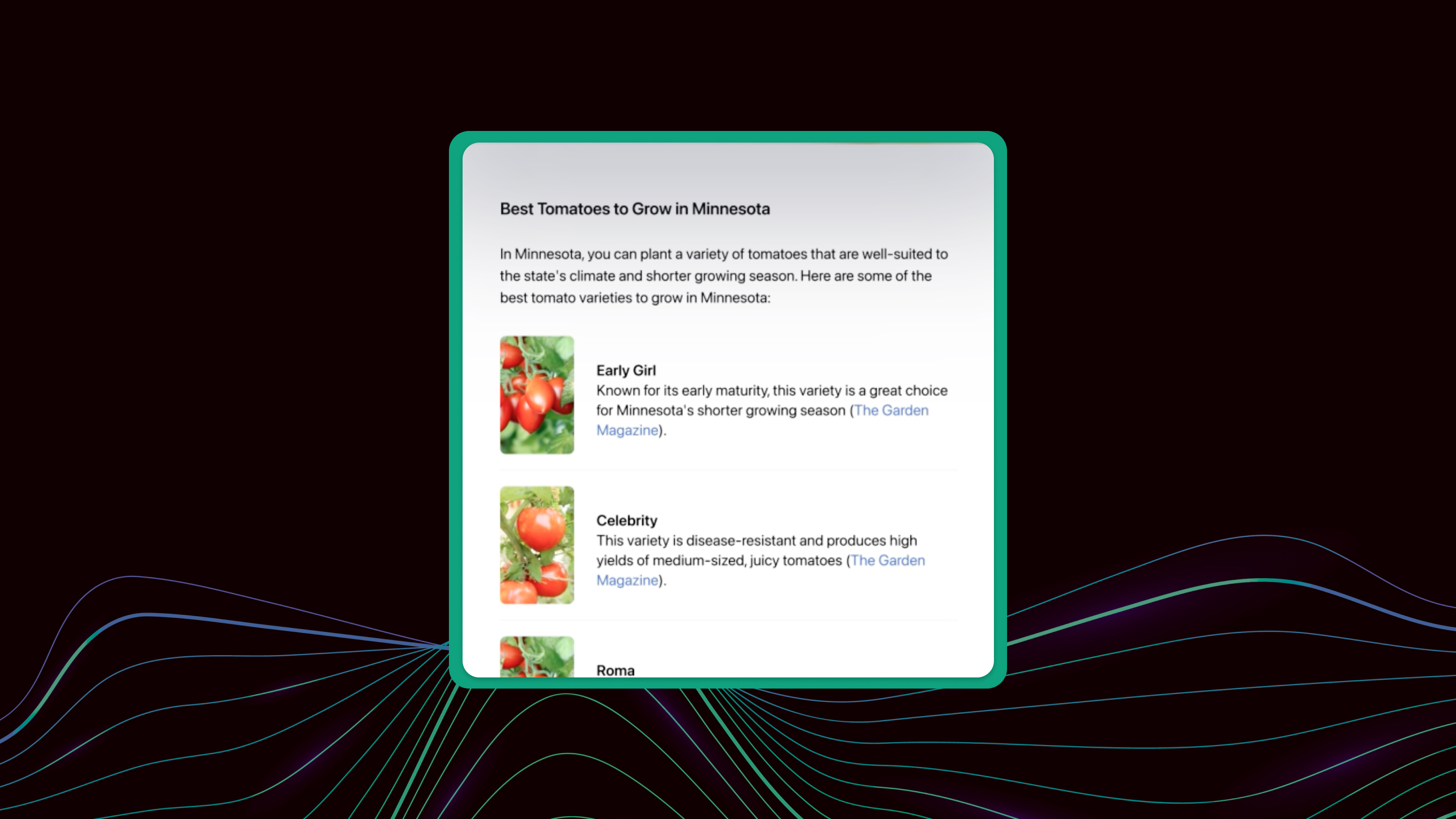
The interactive nature of the platform means you can ask follow-up questions, making it feel more like a conversation than a search.
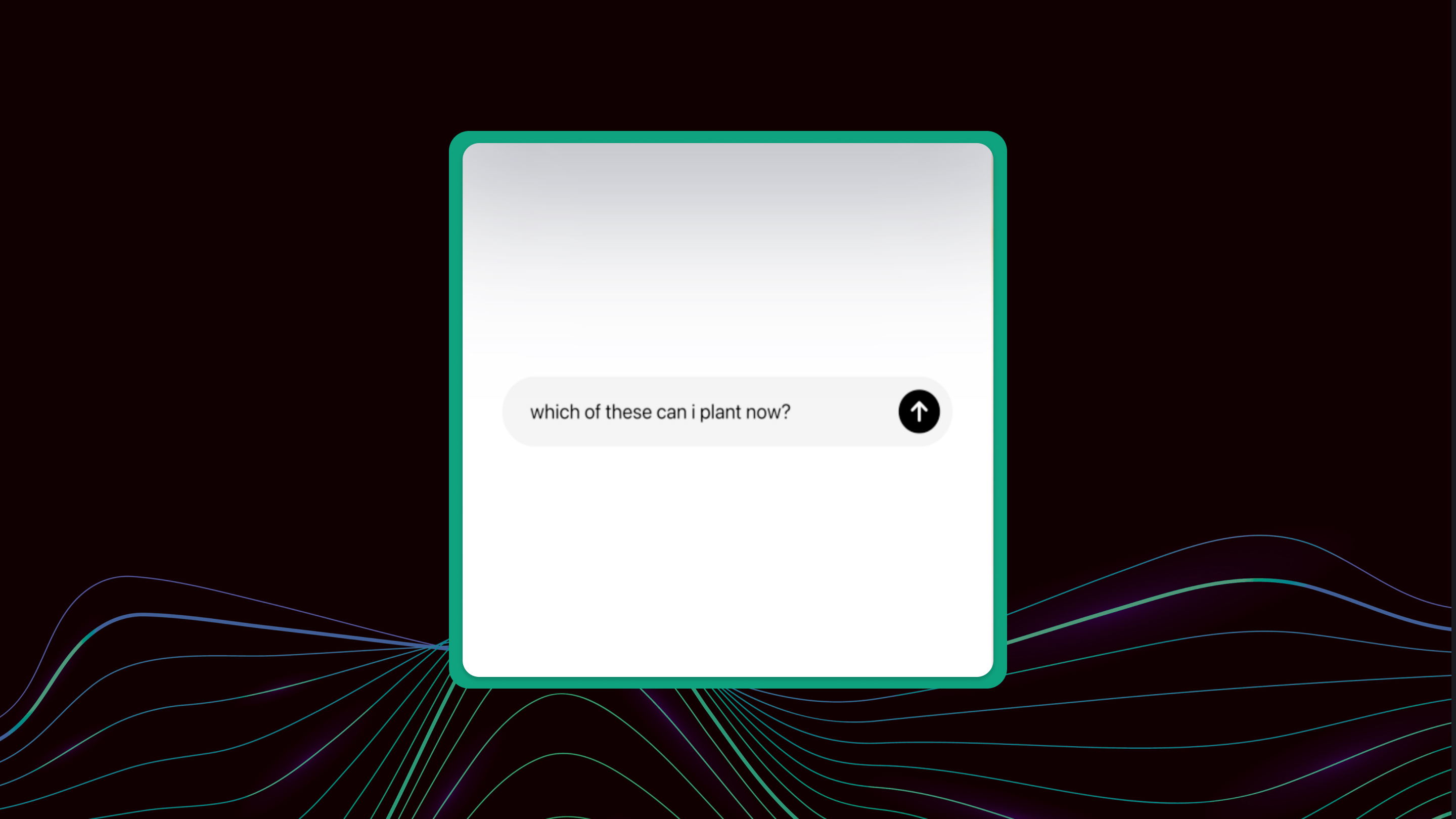
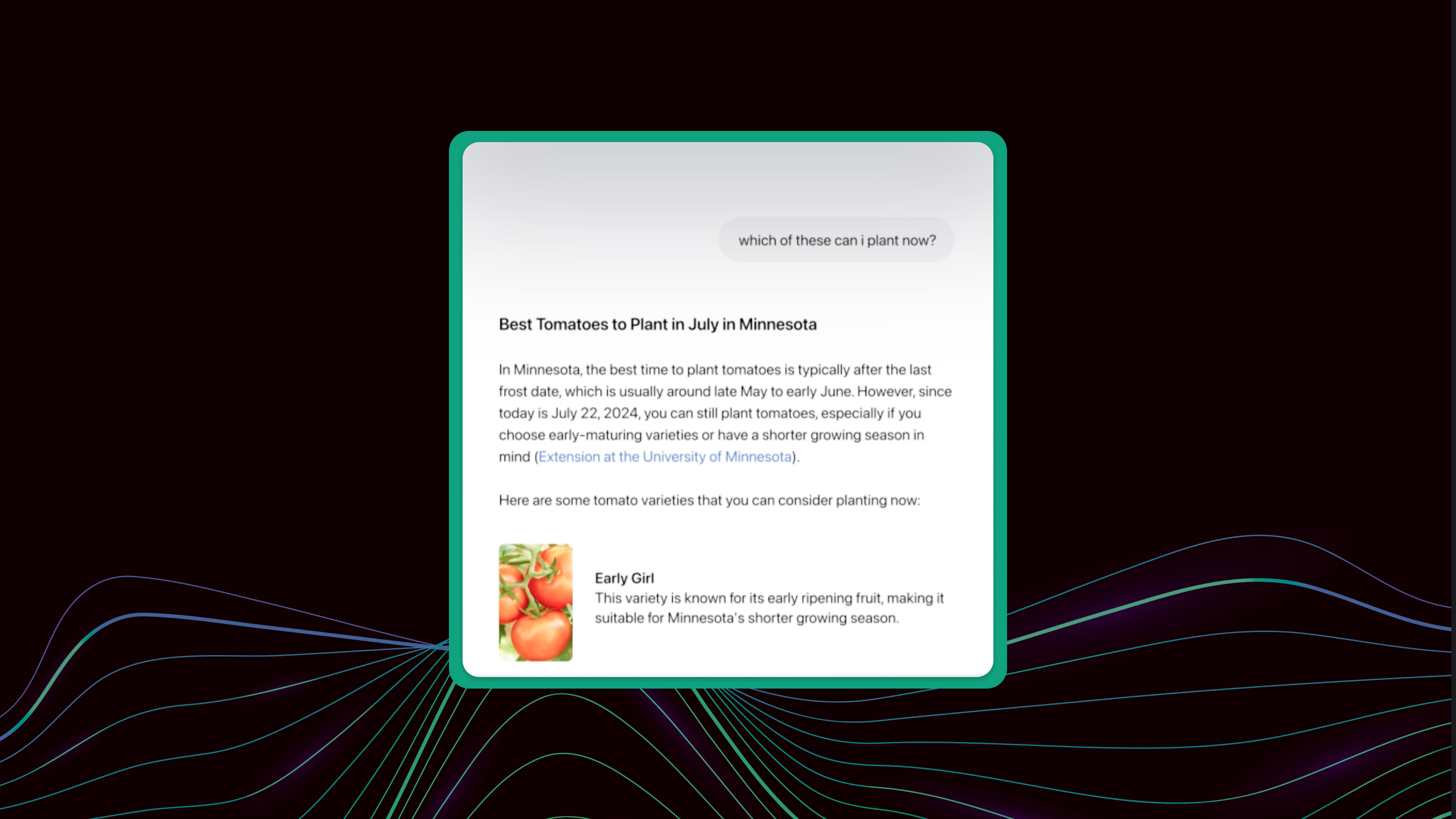
Isn’t This Just Like Google’s New Search Experience?
Not exactly. While both SearchGPT and Google's new AI-powered search experience aim to revolutionize how we search, they take different routes. Google's approach supplements traditional search results with AI-generated summaries and insights, displayed alongside the usual list of links. This hybrid method gives users a quick overview of their query while still offering a comprehensive range of sources.
In contrast, SearchGPT offers a more conversational and synthesized experience. It doesn't merely enhance existing search results but reimagines them, presenting curated and coherent responses directly within the interface. This conversational style and ability to handle follow-up questions set SearchGPT apart, making it a distinct and potentially more engaging alternative to Google Search.
Notably, SearchGPT is also partnering with media organizations and providing them some control over how their content appears in search results. The goal is to offer transparency while helping users connect with publishers through prominently cited links.
The Ripple Effect: What This Means for Digital Marketers
The introduction of SearchGPT is a wake-up call for Google and other search engines. Google's quick move to incorporate AI features across its platform shows a clear reaction to this new competition. But SearchGPT isn't just a threat to Google Search—startups like Perplexity, which offer AI-driven search solutions, are also feeling the heat. Perplexity's issues with plagiarism and "bullshitting" only make SearchGPT's open and ethical approach more appealing.
The Future of Search: Personalized and Conversational
SearchGPT represents a shift towards more personalized and conversational web search experiences. Unlike traditional search engines, which rely on keyword matching and algorithms, SearchGPT understands natural language and context, making it easier for users to find precisely what they're looking for. This could lead to a more intuitive and satisfying search experience, where users feel like they're having a dialogue rather than a transactional exchange.
The SEO Conundrum
Like all disruptive technologies, the emergence of SearchGPT brings new challenges and opportunities. On the SEO front, tactics may need to adapt, as the focus shifts from optimizing for search engine algorithms to ensuring content is easily understandable and digestible by artificial intelligence. This also means rethinking how engagement is measured. Metrics like time spent on the search page, user satisfaction, and the quality of interactions could become more significant than focusing solely on CTR.
New measurement tools and analytics may also emerge to track interactions within the search engine's ecosystem. For example, understanding how often users expand responses, click on source links, or ask follow-up questions could provide valuable insights into user behavior and content effectiveness. This could lead to more sophisticated attribution models, helping marketers understand the true impact of their content in an AI-driven search landscape.
Long-Term Implications: A Paradigm Shift
The long-term implications of SearchGPT and similar technologies could be profound. As artificial intelligence becomes more integrated into everyday search experiences, the role of search engines will likely expand beyond mere information retrieval. They could become advisors, assistants, and even decision-makers, influencing everything from daily tasks to major life choices.
For businesses and digital marketers, this means staying ahead of the curve by continuously adapting to new technologies and user behaviors. Embracing AI-driven tools and strategies will be crucial for maintaining relevance and competitiveness in an increasingly sophisticated digital ecosystem.
Get Ready, Stay Nimble
So, what's the bottom line? Keep your eyes peeled and your strategies flexible! As SearchGPT continues to evolve, so must our digital marketing tactics. The future of web search is here, and it's smarter, faster, and more user-friendly than ever.



